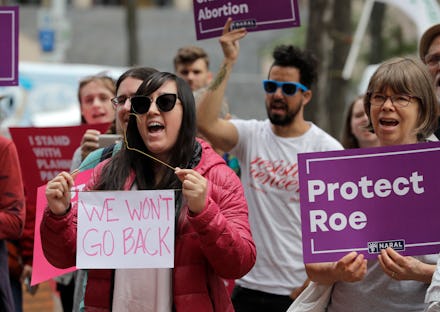Appeals court begrudgingly strikes down Alabama abortion ban that could go to the Supreme Court

As abortion advocates fight the nomination of Judge Brett Kavanaugh to the U.S. Supreme Court, a federal court has struck down Alabama’s ban on a common abortion procedure — very reluctantly.
The 11th Court of Appeals upheld a district court’s ruling striking down the Alabama law as unconstitutional Wednesday. The 2016 Alabama law bans “dilation and evacuation” abortions, an abortion procedure that accounts for most second-trimester abortions in the U.S., according to the Guttmacher Institute.
The Alabama law, the court noted in its ruling, would “place a substantial obstacle in the path of a woman seeking an abortion before the fetus attains viability,” in violation of the U.S. Supreme Court ruling Planned Parenthood of Southeastern Pennsylvania v. Casey.
Though the appeals court upheld the district court’s ruling, it was clearly not eager to do so. Chief Judge Ed Carnes, whom Reuters noted was appointed by President George H.W. Bush, was dismissive of the Supreme Court’s rulings upholding abortion rights in his opinion. He wrote the Supreme Court justices who voted in favor of Roe v. Wade “discovered [the right to undergo an abortion] lurking somewhere in the ‘penumbras of the Bill of Rights.’”
“Some Supreme Court justices have been of the view that there is constitutional law and then there is the aberration of constitutional law relating to abortion,” Carnes wrote. “If so, what we must apply here is the aberration.”
Carnes also referred to the dilation and evacuation procedure as “dismemberment abortion” throughout the ruling, a nonmedical term used by anti-abortion advocates to stigmatize the procedure. The judge claimed the name is “more accurate because the method involves tearing apart and extracting piece-by-piece from the uterus what was until then a living unborn child.”
In a concurring opinion, Judge Joel F. Dubina made it clear he was also ruling against the ban in spite of his personal beliefs.
“The problem I have, as noted in the Chief Judge’s opinion, is that I am not on the Supreme Court, and as a federal appellate judge, I am bound by my oath to follow all of the Supreme Court’s precedents, whether I agree with them or not,” Dubina wrote.
With Kavanaugh’s Senate confirmation a few weeks away, abortion advocates are using the court’s disparaging language against Supreme Court precedent on abortion to highlight the fragility of a woman’s right to choose.
“The chilling language in this decision underscores what’s at risk for our rights and freedoms in this country,” Planned Parenthood Executive Vice President Dawn Laguens said in a statement. “Without a doubt, if the Senate confirms Kavanaugh, the balance of the court will turn against a woman’s constitutional right to abortion.”
Though Kavanaugh has referred to Roe v. Wade as “settled law,” abortion advocates believe the nominee would provide a deciding vote to weaken abortion rights or overturn Roe v. Wade if confirmed — potentially through the Alabama case. The American Civil Liberties Union noted the legal battle is one of dozens of reproductive rights cases that could end up before the Supreme Court, along with other cases centered on similar state abortion bans, mandatory delay laws for women seeking an abortion and efforts to close down abortion clinics.